In Skidziel, baseball serves as a window to the West and as a reason for hometown pride.
It takes about 40 minutes on a crowded minibus to reach the Skidziel Sugar Refinery from the city of Hrodno in western Belarus. When Anton and I arrive, the driver drops us off along with two local women near a lush field of sugar beets that surround the factory.
“What are you doing in Skidziel on a Sunday?” one of them asks in astonishment as we began walking toward town.
“We’re here to watch baseball,” replies Anton, a Belarusian journalist who is showing me around. For the tiny town of Skidziel, this is the biggest game of the season. The Sugar Storm, a team named after the sugar refinery where many of the players work, is about to face the country’s top stars.
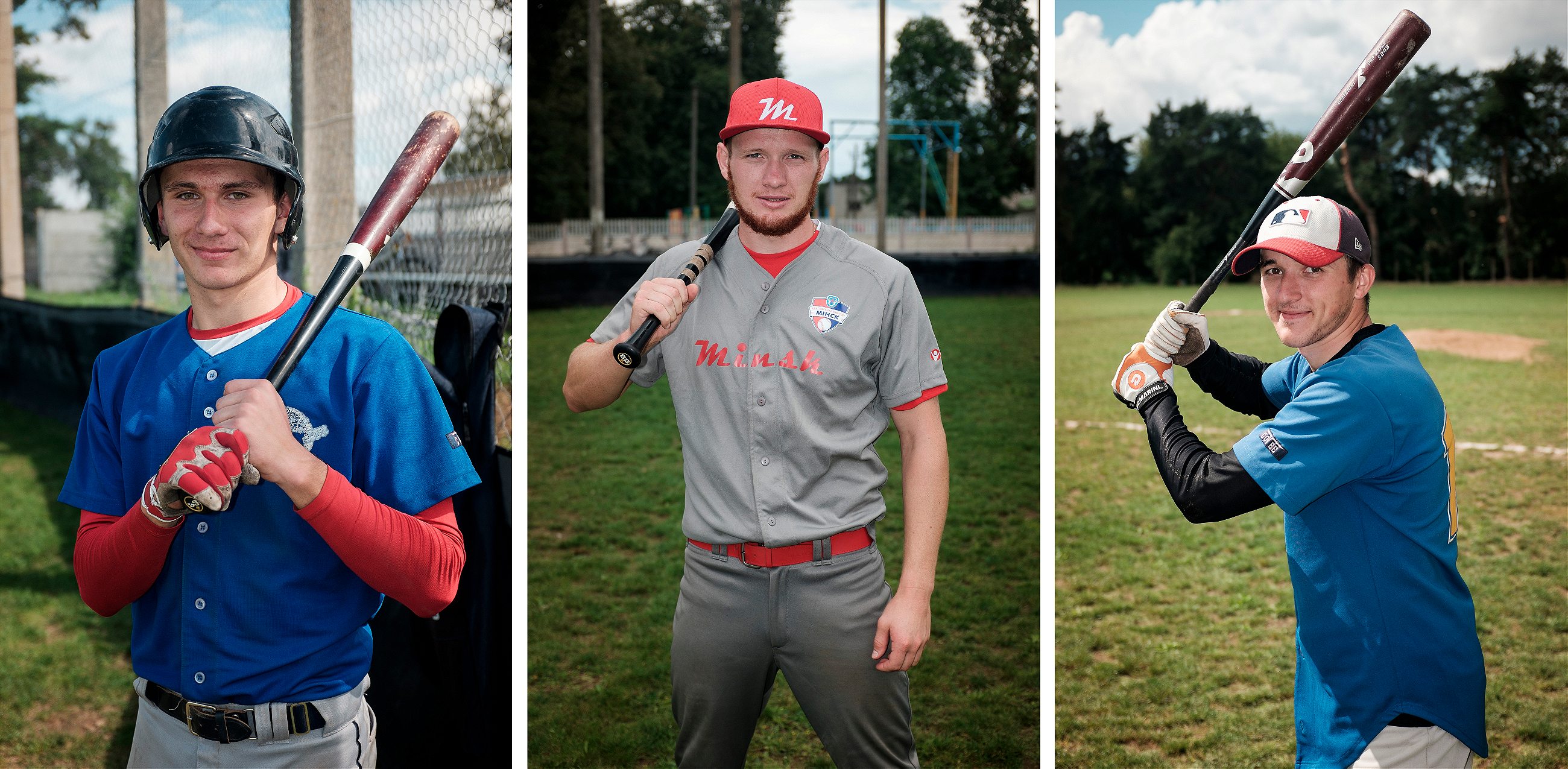
Baseball is an unusual obsession in this part of the world, where soccer is the game of choice. Though the Belarus National Baseball Association was founded in 1988, only four teams compete in the major league. Its chairman, Aleksandr Sechko, became interested in the game during the perestroika years, when the Soviet Union was both opening up to the world and unraveling from within.
“It’s a great game,” he tells me between innings. He is also the coach of the visiting team from Minsk, and made the trip to Skidziel with his players. “I saw it in the 1980s and decided that I wanted to be a baseball player. It was something new and exciting.”
Sechko’s love of the game was contagious. In Skidziel, a schoolteacher named Aleksandr Furman caught the bug from Sechko after meeting him in Misnk and decided to drop volleyball courses at his school in Skidziel in favor of baseball. Aleksandr Matveev, who plays for the Sugar Storm and teaches youth baseball, recalls how Furman showed up to a local field one day in the 1990s with a trunk full of bats and balls. From then on, Matveev was hooked, and baseball became the sport of choice for kids in Skidziel.
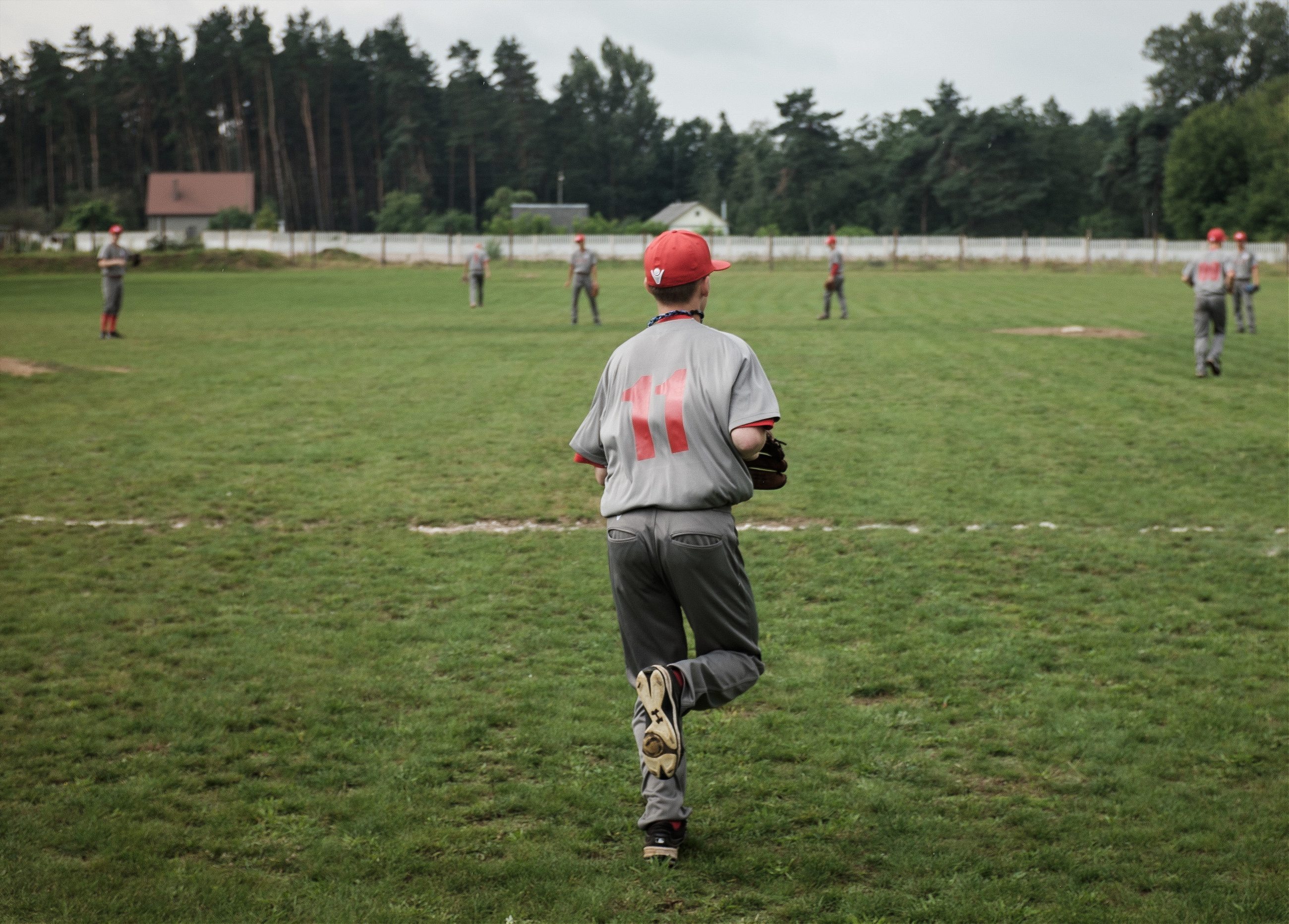
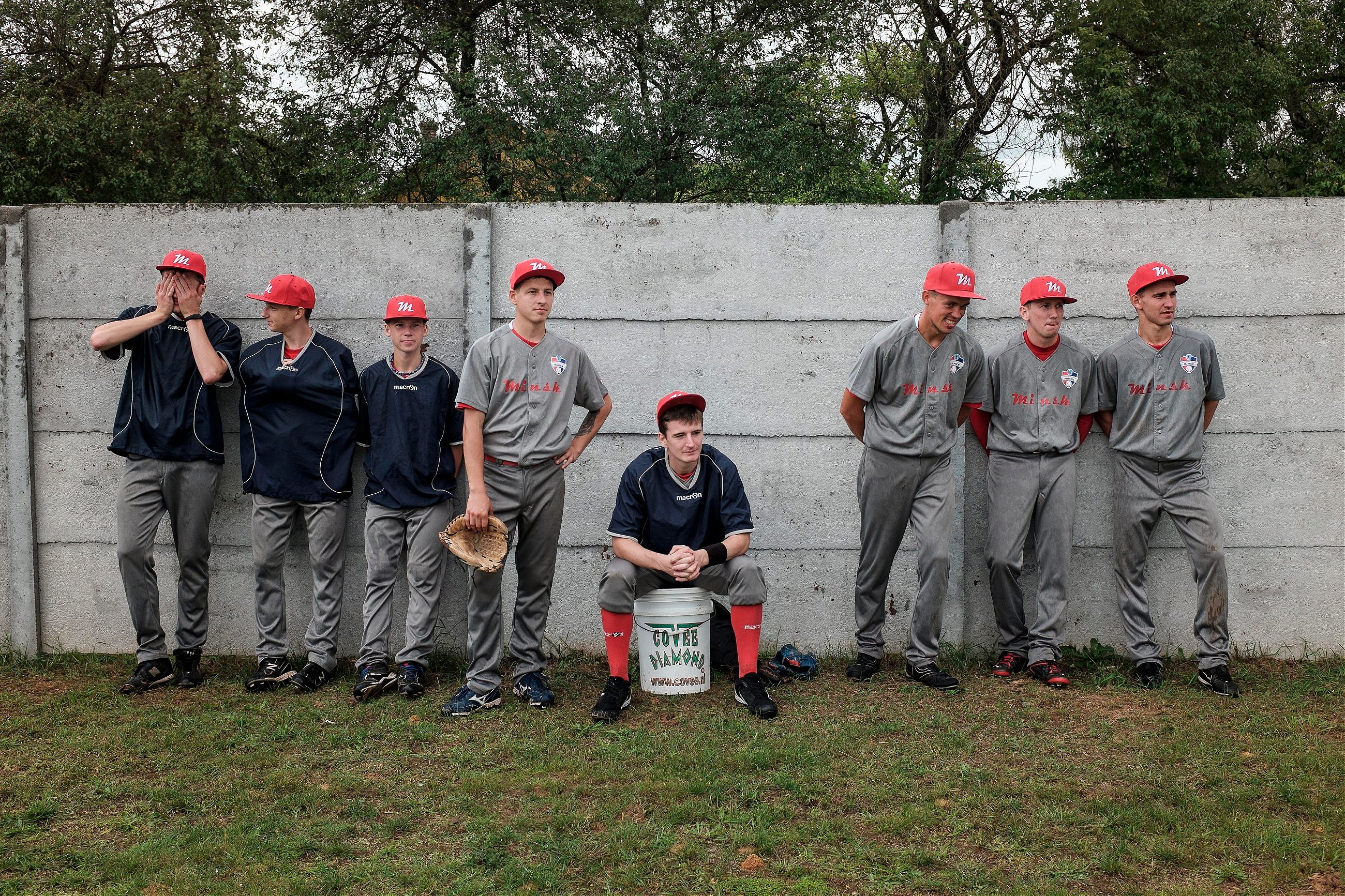
“My dad thought it was strange,” says Matveev. “He told me baseball is an American sport. So what? Soccer is English; hockey is Canadian. Older people can be a little too conservative.”
In this remote place, baseball serves both as a window to the West and as a reason for hometown pride. Sugar Storm players dot the field in the caps of their favorite American teams. When I ask Matveev why he likes the Chicago Cubs, he says it’s because the letter C resembles the Cyrillic letter S—for Skidziel.
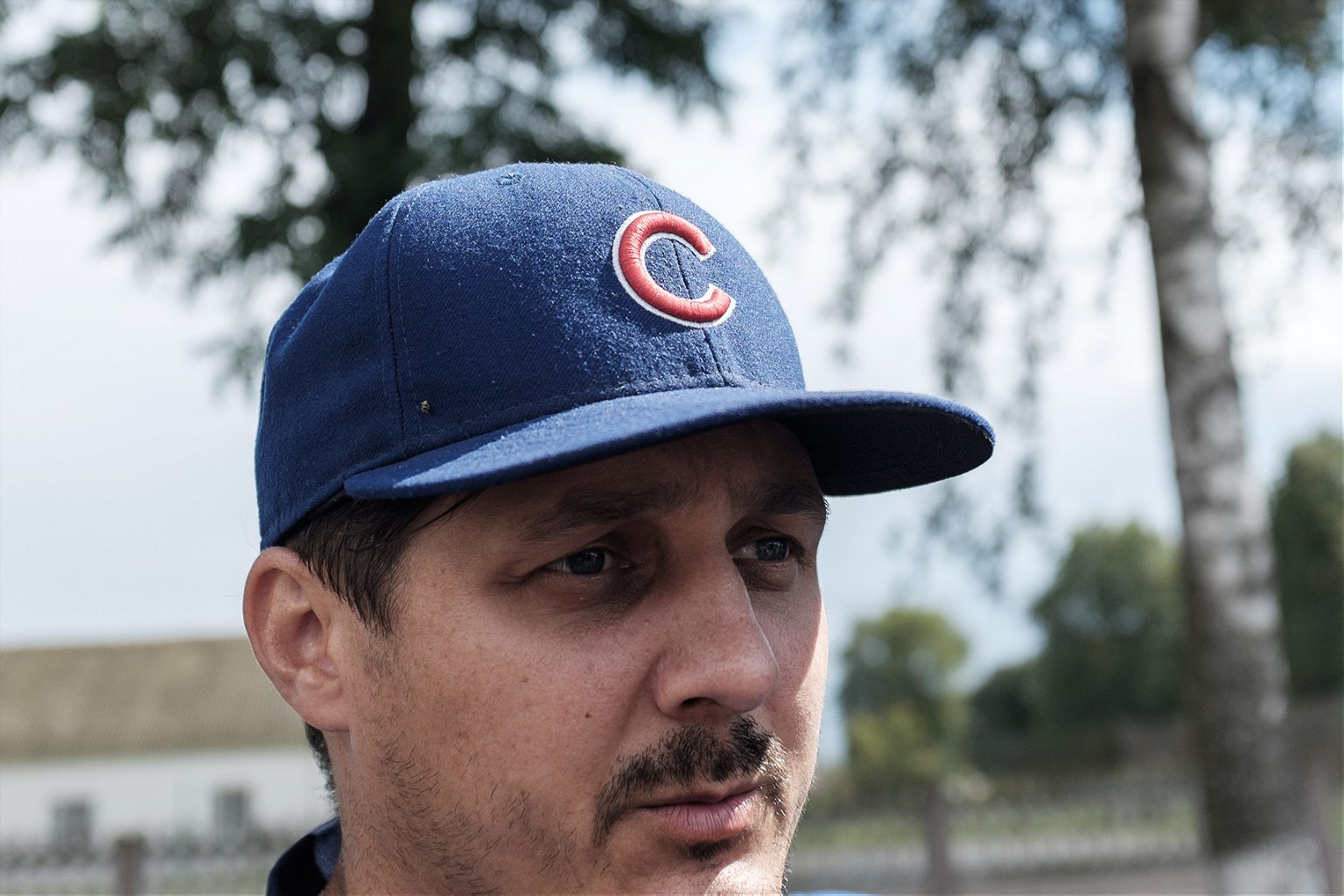
The first spectator to arrive is an elderly man named Rastislav Stepaniuk, who holds the title of the area’s biggest baseball fan. Although he doesn’t entirely grasp the rules, he says the game reminds him of lapta, a Russian sport somewhat similar to cricket that he played during his youth.
“I come to almost every game,” says Stepaniuk, who watches the game by himself in a camouflage hat, having carefully leaned his single-speed bicycle against the fence behind the home plate. “Not long ago a ball hit me in the head while I was sitting here. I walked around like a drunk for a week.”
The blow to the head hasn’t deterred Stepaniuk, who sits patiently and waits for the players to take the small field. Baseball in Belarus is seeing growing interest and teams are beginning to compete in nearby countries, such as Ukraine and Lithuania. The reclusive former Soviet republic has opened up slightly in recent years, as the government tries to mend relations with the West while its neighbor and main financial backer, Russia, faces an economic crisis and becomes increasingly belligerent in Eastern Europe.

By the top of the third inning, a small group of spectators has gathered: the girlfriends of two of the players and a gaggle of school kids anxious to catch a foul ball. Yuriy Shtro, the coach of the Sugar Storm, says the sport sometimes attracts as many as 40 people in the town of about 10,500. Today, though, most of the fair-weather fans have decided to sit out the overcast game.
The teams are tied 2-2 when a Sugar Storm player tries to steal second and is nearly tagged out. Shtro unleashes a volley of obscenities while two young women giggle under an umbrella. The baseball diamond, built by local enthusiasts, is situated uncomfortably close to a schoolteacher’s house, which soon finds itself in prime foul territory. When a ball flies over the backstop, a search party descends on the property, hunting through the yard for the lost ball and eating bright red apples from the property’s trees.
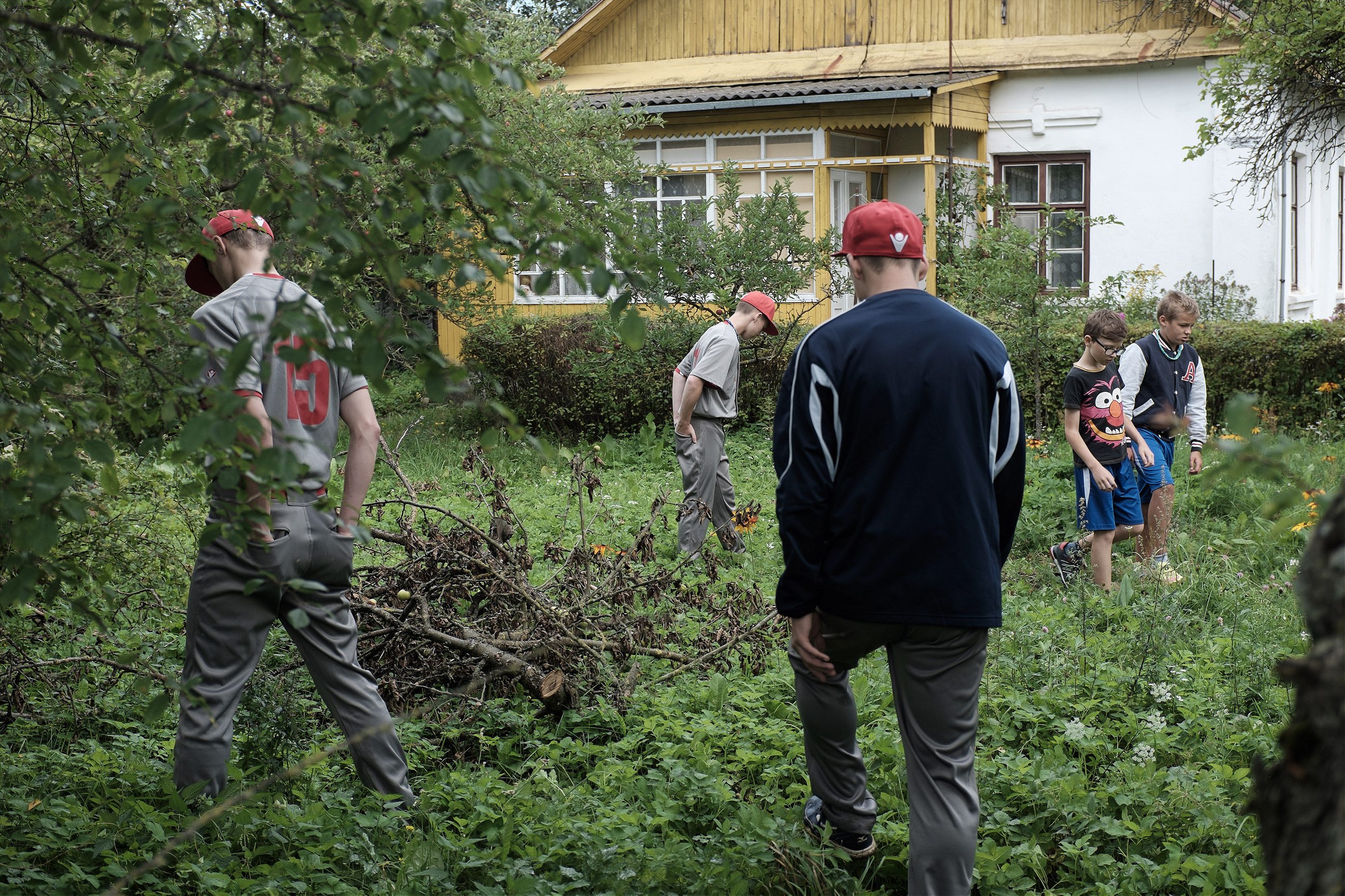
The Sugar Storm makes a good effort, but Minsk ends up winning 7-4. Unlike the visiting team, local players receive no salaries and rely on small donations from the sugar refinery to buy uniforms and tend the lawn of the baseball diamond. Matveev and Shtro credit the team’s strength to the love of the game in Skidziel.
A few days before the game, it was announced that baseball would be included in the 2020 Olympic Games in Tokyo. Players here hope they will be among those selected to compete if Belarus fields a team. After all, Sugar Storm won the Belarus national championship in 2011.